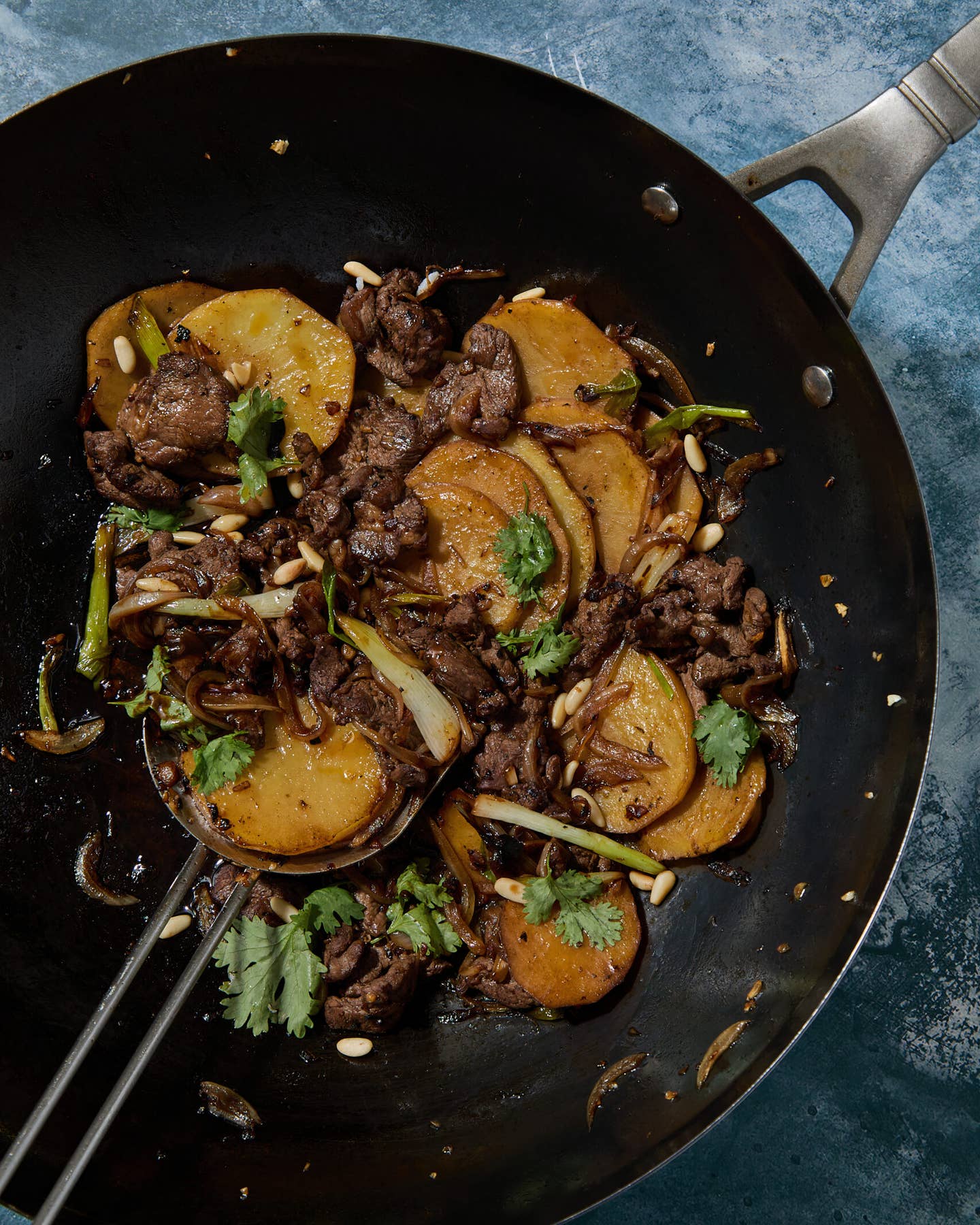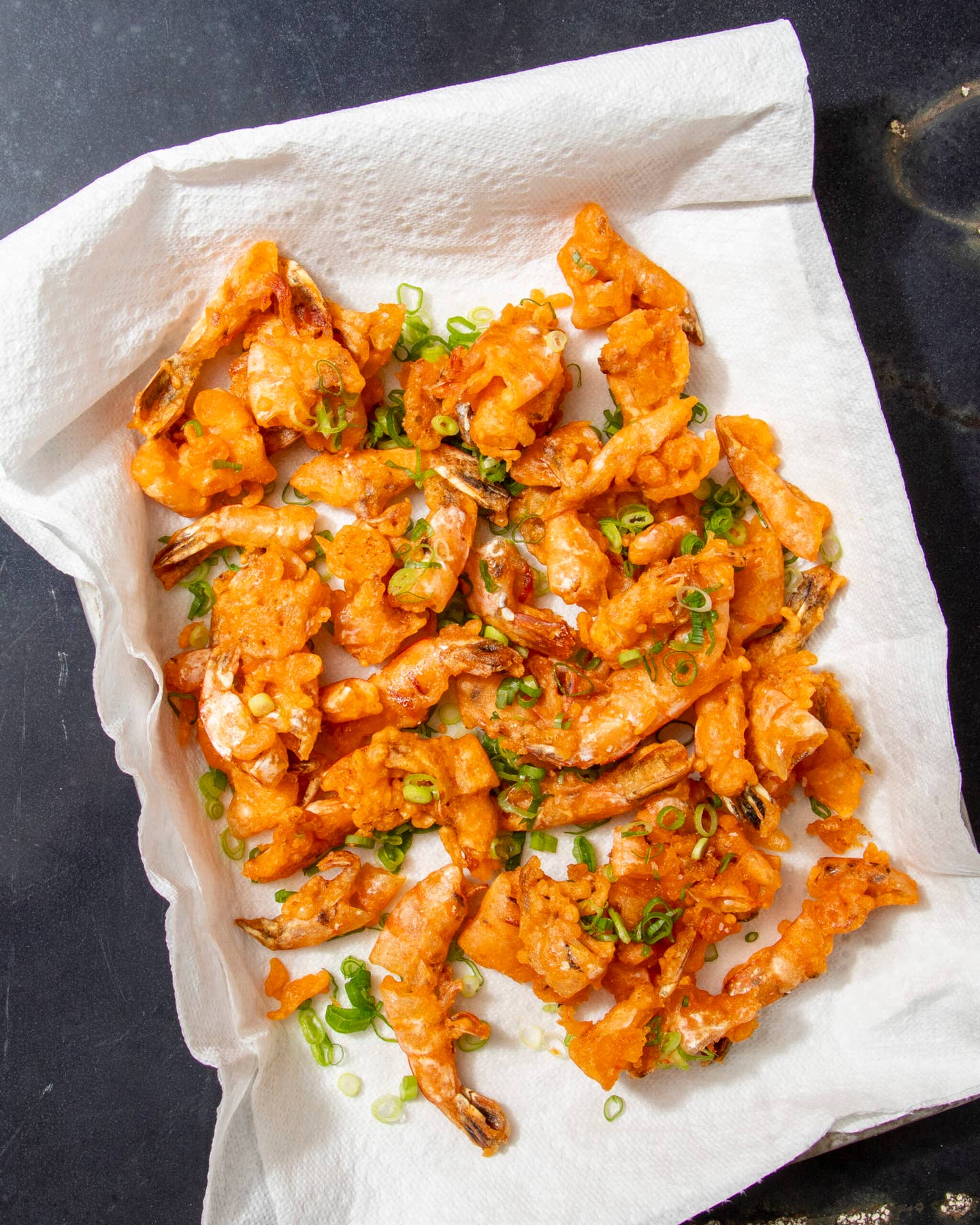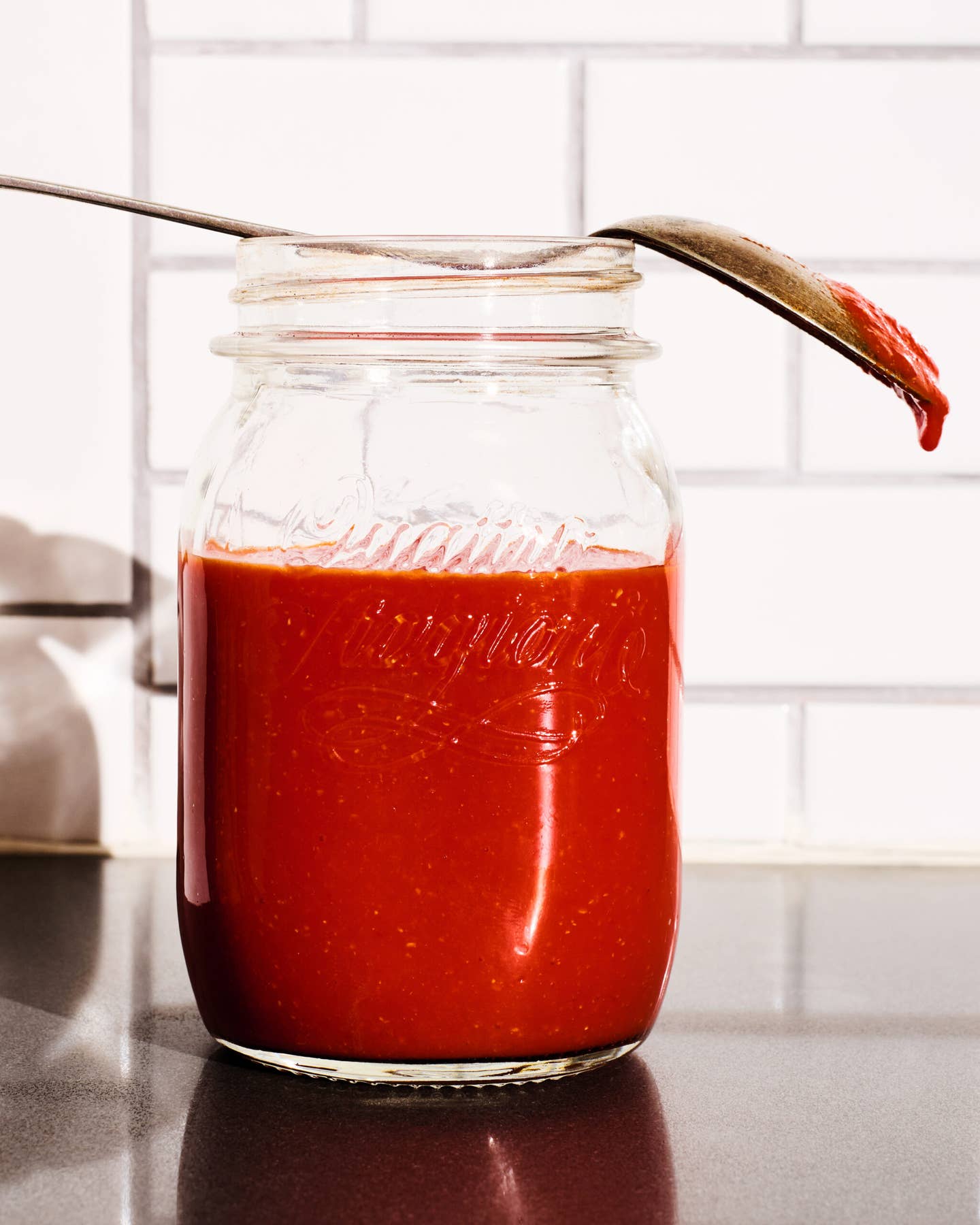
A few years ago, my friend Kurt brought me a souvenir from his trip to Alaska. "It's an ivory king, or white, salmon," he explained, while handing me a foil-wrapped package of filets he'd sliced off a 30-pound specimen. "It will forever change the way you think about the fish."
He was right. I hadn't known that salmon came in any color other than pink, orange, or, in the case of wild sockeye salmon, bright, blushing red; and later, when I was readying the filets for cooking, I realized that the way I think about the fish has always been dictated as much by its color as by its taste. As I sprinkled the pale gray, meaty filets with salt and pepper and quickly seared them in the pan, I might have been cooking perch or sea bass. After just a few moments, a sweet smell emanated from the pan and the cooked flesh turned an alabaster white; I transferred the fish to a low oven and in 20 minutes feasted on some of the most fantastic fish I'd ever tasted. Rich and slicked with aromatic fat, it lacked the distinctive fishiness that characterizes even the freshest wild salmon. This fish was both decadent and demure.
Why had I never before encountered an ivory king? As it turns out, ivory king is not a different variety of salmon at all. A small percentage of all king salmon—between 5 and 10 percent, according to some reports—contain flesh that is pale gray when raw and ivory white when cooked. Scientists have proved that white salmon are exactly the same as their rosy-hued brethren, save for the fact that they lack a gene that makes carotenoids—the nutrients that tint foods like carrots orange—biologically available. So, while ivory kings eat the same food that other salmon do, the carotenoid astaxanthin that's present in krill and crabs passes through their system and does not leave a colorful imprint on their flesh. Until recently, these rarities were seldom seen outside their local markets on the West Coast; regarded as genetic mutations, they were often discarded or sold for less money than normal salmon by fishmongers, who wouldn't know until slicing into the fish that the meat was white. Within the past few years, however, as chefs around the country have grown savvier about the provenance of the fish they serve, some have begun asking suppliers for ivory kings (which now fetch higher prices than regular salmon).
Do they actually taste any different? I wondered whether the lack of carotenoids accounted for what I perceived to be a sweeter, more nuanced taste and succulent texture, but the scientists I consulted and the folks at the Alaskan Seafood Marketing Board couldn't back up my theory. I asked Louis Rozzo, a fishmonger in New York City whose family has been selling to restaurants for more than 100 years, whether the chefs he supplies discerned any culinary attributes unique to ivory kings. "Some chefs say they are oilier and taste better, but others say they're exactly the same," he answered. "It's a novelty item," he added. A delicious one, though.
Keep Reading
Continue to Next Story










